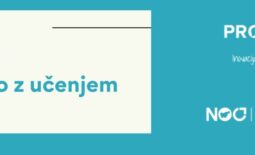How to manage your time?
First, let’s define “Time management”. It is the process of organizing and planning how to divide your time between specific activities.
Good time management enables you to work smarter – not harder. What do we mean by that?
- We do more in less time. Meaning, we are more efficient by being in control of how we spend our time. We can focus better on important tasks, and better focus leads to better efficiency.
- We make better decisions, because the lasck of time management skills leave us with little time to comprehend and predict the impact of our decisions.
- All in all success. When we take advantage of time, we can perform better regularly, take more effective decisions, and differentiate between important and meaningless tasks. This ability to identify and focus on important areas will eventually lead to greater success in life.
Of course this doesn’t mean we get extra hours in the day. However, we take better advantage of the hours we already have. Because failing to manage our time damages our effectiveness and causes stress. Now, who would want that?
So how do we become better time managers? There is certainly no shortage of advice and tools. But, most of these presume a person’s underlying skill set. To put it simply, using a time management app will make all the difference, when in fact the skills themselves are what make the difference between time management success from failure.
There are three important skills to master:
- Awareness: thinking realistically about your time by understanding it is a limited resource.
- Arrangement: designing and organizing your goals, plans, schedules, and tasks to effectively use time.
- Adaptation: monitoring your use of time while performing activities, including adjusting to interruptions or changing priorities.
How do we build these skills?
Firstly, developing the awareness skills is about understanding how you work truthfully. No bullsh*t.
- Find your peak performance time. Spend at least a week observing your energy and concentration levels. We all know about the early bird and the night owl, but there is so much more. When you take a closer look you will see, what time of day you are most productive, but also in correlation with other factors, such as lunch time, the space you’re in, the people around you, your menstrual cycle (if you experience that) and so forth. Break your day into slots and find your peak performance.
- Time your to-do’s and be realistic. Keep a record of how much time you need to complete a certain tasks. Evaluate how long you thought it would take and how long it actually took. This will help you later in the planning stage.
Next, developing arrangement skills. This is where all your research comes together in a structured plan.
- Yes, the Eisenhower Matrix. To put it in a different way, prioritize! Not everything is important and ugent. List your tasks, to-do lists, and meetings and then apply the matrix.
- Don’t underestimate your to-do’s. When forming plans, ask for feedback about the deadlines you’ve set. Especially if you’re delegating tasks to your teammates. Your matrix has to fit your team’s as well.
- Break your tasks down. Especially when it comes to big projects or tasks, break them down into smaller tasks and concur them one at a time.
- Use apps and other organizing tools. Take advantage of tools and pick one that works for you. Time blocking by using google calendar maybee right for you, or perhaps an old fashioned pen and paper. Whatever it is, it won’t help you if you don’t use it correctly, meaning if you didn’t do the steps mentioned before.
Last but not least, developing adaptation skills. These skills come into play at high pressure situations, to avoid getting upset, anxious, or distracted.
- Try the pomodoro technique or similar others. Set a timer for 25 minutes and focus on a single task until the timer rings. Then take a 5 minute break and repeat. The point of this kind of approach is to put in maximum effort, following a reward aka break, to avoid procrastination. Especially when tasks seem overwhelming.
- Experiment with time management apps and techniques. What works for you, may not work for others. What works now may not work later. What works for you individually, may not work for your entire team. Choose a tool and use it for some time, assess it’s success and move on if needed. Always remember that the benefit must exceed cost, meaning using a tool should not end up being another time consuming thing on your to-do list.
To conclude, there are no quick fixes. There is no magic app that will do the work for you. You need to prioritize time management, so that you can be more efficient “at work” and also have more time for your personal life. Because “Time is the most valuable thing a man can spend”. – Theophrastus.




